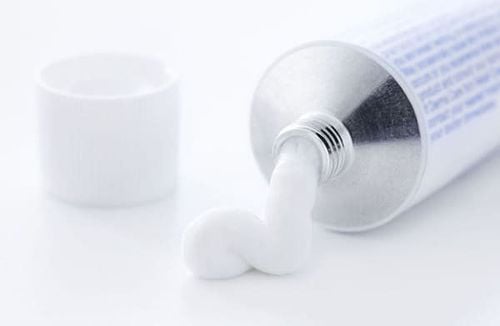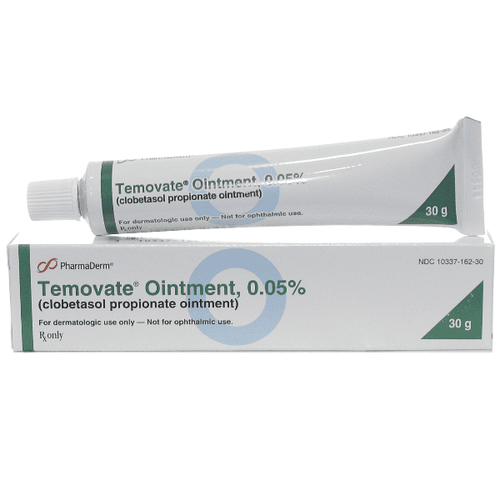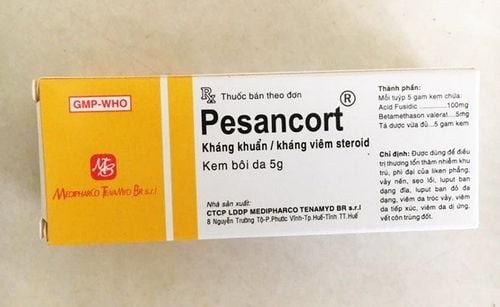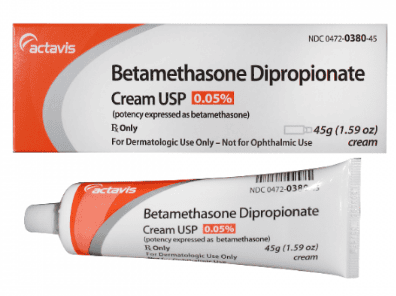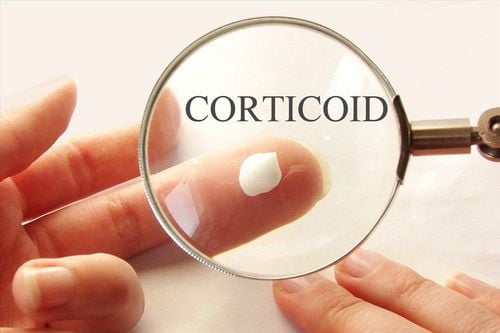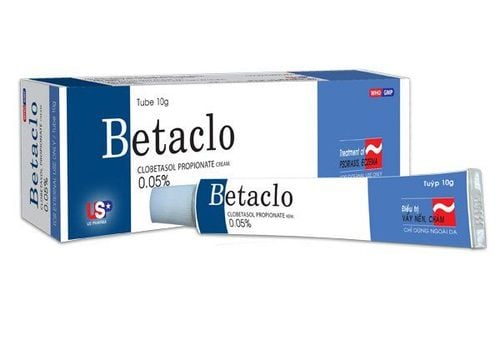This is an automatically translated article.
Sihiron drug is used to treat inflammatory skin diseases such as bacterial infections, fungi, allergic Eczema, psoriasis... So how should patients use Sihiron?
1. Ingredients of Sihiron
In the tube of Sihiron 10g, there are the following ingredients:
Betamethasone Dipropionate 6.4 mg; Clotrimazole 100mg strength; Gentamicin 10mg; Some excipients are just 10g. Sihiron drug is made in the form of a cream for topical application and is classified as a drug for the treatment of dermatological diseases.
2. How does Sihiron work?
Betamethasone is an active ingredient used relatively commonly in drugs for the treatment of dermatological diseases. Betamethasone is a synthetic corticosteroid with very strong glucocorticoid (GC) activity, but insignificant Mineralocorticoid (MC) activity. When used topically, Betamethasone in Sihiron is effective in the treatment of corticosteroid-responsive skin lesions, thereby providing anti-inflammatory and anti-allergic effects. The anti-inflammatory activity of 0.75mg Betamethasone is equivalent to 5mg Prednisolone.
Clotrimazole is another ingredient of the drug Sihiron, which is essentially an antifungal drug of the imidazole group with a broad spectrum of action. Clotrimazole is often indicated in combination with other ingredients in the topical treatment of fungal infections of the skin and soft tissues. The mechanism of action of Clotrimazole is to combine with Phospholipids in the cell membrane, then change the permeability of the membrane, leading to the loss of essential substances out and causing damage and destruction of fungal cells. Gentamicin is an aminoglycoside antibiotic, often combined in topical creams (such as Sihiron) to treat skin infections. Gentamicin's mechanism of action is to inhibit the growth of some pathogenic bacteria on the skin. Gentamicin has affinity for Gram-negative bacteria and staphylococci.
3. Indications of the drug Sihiron
Sihiron is indicated for use in cases of skin diseases as follows:
Bacterial or fungal infections on the skin; Contact dermatitis ; Allergic eczema, itchy skin, allergic skin rash; Psoriasis, boils, vitiligo, skin rash; In addition, Sihiron medicinal cream is also indicated in the treatment of nail fungus, eczema, Candida infection and Napkin rash...
4. Instructions for using Sihiron
4.1. Dosage Sihiron Every day, patients according to the recommended indications, apply Sihiron medicine 2 to 3 times on the damaged skin. Note that patients should apply Sihiron regularly every day according to the instructions of the doctor.
Dosage and duration of treatment with Sihiron drug depends on each patient with the level and specific disease condition.
4.2 How to use Sihiron Before using Sihiron products, the patient needs to clean the skin that is about to be applied. At the same time, wash your hands thoroughly, then dry them with a clean soft cloth.
Patients use a sufficient amount of Sihiron cream, then gently apply in a thin layer to the diseased skin.
For areas of skin that must come into contact with clothing, the patient should wait a while for Sihiron medicine to penetrate into the skin before wearing clothes again.
One thing many people miss is that after applying Sihiron medicine, the patient should wash their hands thoroughly with soap to avoid the amount of medicine left on their hands from getting into their eyes, nose and mouth.
5. Contraindications of Sihiron
Patients with a history or hypersensitivity to Betamethasone, Clotrimazole and Gentamycin or any ingredients in Sihiron medicine; Do not use Sihiron medicine for children under 1 year old; Do not apply Sihiron to open wounds, including scratches; Do not apply or get Sihiron medicine on lips, mouth, eyelids or the skin around the nipples (for those who are breastfeeding).
6. Side effects of Sihiron
Using Sihiron medicine can cause patients to experience unwanted effects as follows:
Feeling of slight burning, irritation, allergies, burning pain in the skin area where Sihiron is applied ...; Dry skin, itching, rash, increased or decreased pigmentation... However, these are just a few of the common side effects of Sihiron, if unwanted side effects affect Vietnam, they need to be treated. Consult your doctor in case of other unusual symptoms.
7. Sihiron drug interactions
When combining Sihiron with Tacrolimus in liver transplant patients, special care should be taken because Clotrimazol can increase Tacrolimus serum concentrations. Therefore, if the combination is mandatory, the doctor should consider adjusting the dose of Tacrolimus according to the doctor's instructions. Patients should still be careful, avoid using many other topical products at the same time while taking Sihiron to minimize unwanted interactions that may be encountered. When combining Sihiron with other drugs or topical creams, patients need to consult their doctor carefully, especially not arbitrarily because this has the risk of causing irritation, cross-reaction to the skin. more seriously injured.
8. Notes when using Sihiron
Patients need to carefully read the instructions for use or talk to their doctor before starting to take Sihiron. Absolutely do not use Sihiron products that have expired or have physical or sensory changes of the drug. Only use Sihiron medicinal products for external application, do not use for other routes of use. If Sihiron gets into eyes, nose, or mouth, the patient must immediately rinse or rinse thoroughly. After applying Sihiron cream, the patient must wash their hands to avoid the cream from getting into the eyes, nose, mouth or other skin areas. Stop using Sihiron if the condition worsens, causing prolonged irritation. Or the cases of taking the drug for 4 weeks without any improvement in the pathology, then the patient should re-examine and ask the doctor's opinion about using other drugs. Sihiron contains Corticoid (Betamethasone), so it is not suitable for people with soft, thin, immature skin like babies. Applying Sihiron to the skin can cause harmful reactions in children. For pregnant and lactating women, consult a doctor when using Sihiron. If you are breastfeeding and use Sihiron products, be careful not to apply the medicine to the skin around the nipple to avoid harm to the nursing baby.
Please dial HOTLINE for more information or register for an appointment HERE. Download MyVinmec app to make appointments faster and to manage your bookings easily.




